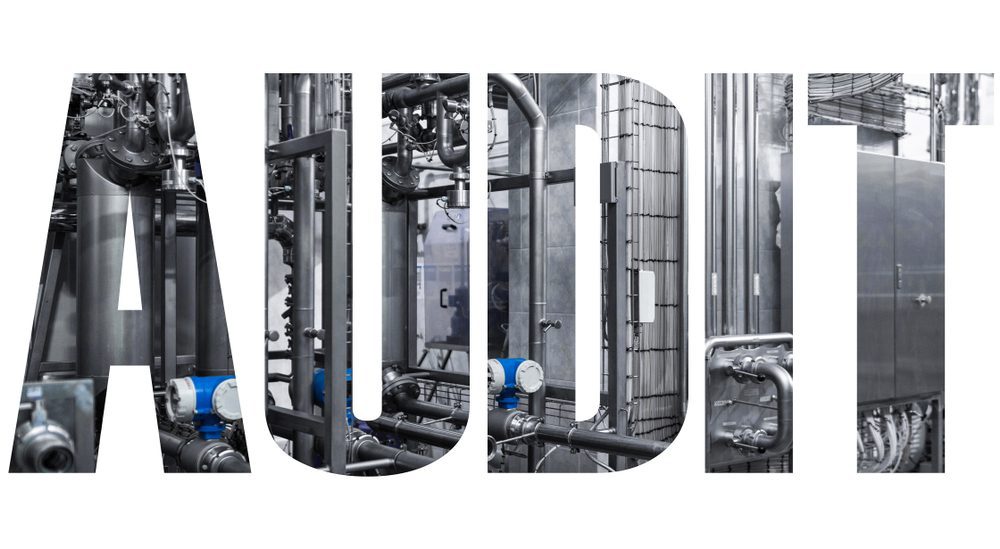Introduction
New York City’s iconic skyline represents its thriving urban life and bustling economy. However, beneath the towering structures lies an often-overlooked aspect of the city – its substantial energy consumption. To address the pressing need for improved energy efficiency and sustainability, NYC introduced Local Law 87. This article delves into the intricacies of Local Law 87, its energy audit requirements, and why it matters.
Understanding Local Law 87
Background and History of Local Law 87
Enacted in 2009, Local Law 87 is a part of NYC’s broader sustainability initiatives. It aims to reduce energy consumption and greenhouse gas emissions from buildings, which constitute a significant portion of the city’s energy use. This law mandates energy audits and retro-commissioning for existing buildings, making it pivotal in NYC’s sustainability strategy.
Objectives and Goals of the Law
Local Law 87 strives to enhance energy efficiency, thereby curbing the environmental impact of the city’s building environment. Through energy audits and retro-commissioning, building owners can identify opportunities to improve energy performance and reduce costs.
Applicability and Compliance Requirements
The law applies to buildings in NYC with a floor area exceeding 50,000 square feet. These buildings must undergo energy audits and retro-commissioning at specified intervals (once every 10 years depending on the last digit of the building ID number), ensuring building owners take proactive steps to assess and enhance their energy use.
The Basics of Energy Audits
What is an Energy Audit?
An energy audit is a comprehensive assessment of a building’s energy consumption and performance. It involves a systematic review of energy systems, equipment, and operational practices to identify inefficiencies and areas for improvement.
Different Types of Energy Audits
Energy audits are categorized into three levels:
1. Preliminary Energy Audit: Offers an initial overview of energy consumption and identifies potential improvements.
2. Detailed Energy Audit: Involves a thorough examination of building systems, equipment, and operations.
3. Investment-Grade Energy Audit: The most detailed audit, often used for large-scale projects, includes precise calculations, cost estimates, and performance projections.
Why are Energy Audits Important?
Energy audits are crucial for several reasons:
– Cost Savings: Identify cost-effective energy-saving measures, resulting in significant utility bill reductions.
– Environmental Impact: Reduce greenhouse gas emissions and contribute to a greener, more sustainable city.
– Building Performance: Enhance building performance, improving occupant comfort and satisfaction.
– Regulatory Compliance: Ensure compliance with Local Law 87 and other energy regulations, avoiding penalties and maintaining a positive image.
Benefits of Energy Audits
Cost Savings Through Energy Efficiency
Energy audits lead to immediate and tangible benefits through cost savings. By identifying and implementing energy-saving measures, building owners can substantially reduce utility expenses. Over time, these savings offset audit and improvement costs, providing a positive return on investment.
Reduced Environmental Impact
NYC has ambitious sustainability goals, and energy audits play a pivotal role in achieving them. By reducing energy consumption and greenhouse gas emissions, building owners contribute to a cleaner and greener city, aligning with NYC’s commitment to combat climate change.
Improved Building Performance and Occupant Comfort
Energy audits uncover issues affecting occupant comfort related to building systems and equipment. Addressing these issues creates a more pleasant and productive indoor environment, enhancing tenant satisfaction and retention.
Compliance with Energy Regulations and Certifications
Compliance with Local Law 87 is not just a legal requirement; it’s an opportunity to earn certifications like ENERGY STAR or LEED (Leadership in Energy and Environmental Design). These certifications enhance a building’s marketability and demonstrate a commitment to sustainability.
Who Needs to Comply with Local Law 87?
Types of Buildings Covered by Local Law 87
Local Law 87 applies to various buildings, including commercial, multi-family, and institutional structures. To determine if your building falls under its purview, consider its floor area, which must exceed 50,000 square feet. Multi-building campuses may also be subject to the law if their combined floor area meets this threshold.
Exemptions and Exceptions
While Local Law 87 has broad coverage, there are exemptions and exceptions. Buildings that have undergone an energy audit and retro-commissioning within the past decade may have temporary relief from compliance. Certain religious buildings, low-income housing, and city-owned facilities may be eligible for exemptions.
Deadlines for Compliance
Building owners must adhere to specific compliance deadlines based on the last digit of the tax block number, typically staggered over a ten-year cycle. Missing deadlines can result in penalties, so it’s crucial to stay informed about your building’s compliance schedule.
The Energy Audit Process
Selecting a Qualified Energy Auditor
Choosing the right energy auditor is a critical first step. Auditors should be certified professionals with expertise in building systems and energy efficiency. Building owners can select auditors based on their qualifications, experience, and track record.
Data Collection and Analysis
During the energy audit, data collection is crucial. It involves gathering information about the building’s energy systems, equipment, and operations. Data is analyzed to identify areas for improvement and potential energy-saving measures.
Identifying Energy-Saving Opportunities
Energy auditors work closely with building owners and managers to identify energy-saving opportunities. These may include upgrading HVAC systems, improving insulation, retrofitting lighting, and optimizing building controls.
Recommendations for Improvements
Based on their findings, energy auditors provide detailed recommendations for energy-saving improvements. These recommendations are prioritized based on their potential impact and cost-effectiveness. Building owners can then decide which measures to implement.
Energy Audit Reporting Requirements
Components of the Energy Audit Report
The energy audit report is a comprehensive document outlining the audit process, findings, and recommendations. Typically, it includes:
– Building and energy system descriptions.
– Energy consumption and cost summaries.
– Energy Use Intensity (EUI) analysis.
– Findings from on-site inspections and data collection.
– A list of recommended energy-saving measures.
– Cost estimates and projected savings.
– Implementation timelines.
– Compliance documentation.
Submission and Approval Process
Building owners must submit their energy audit reports to the NYC Department of Buildings (DOB) for approval. Once approved, they must implement the recommended improvements within a specified timeframe.
Documentation and Record-Keeping
Compliance with Local Law 87 also requires meticulous record-keeping. Building owners must retain copies of energy audit reports, compliance documentation, and records related to the implementation of energy-saving measures. These records may be subject to inspection by city authorities.
Cost of Energy Audits
Factors Influencing the Cost
The cost of an energy audit varies based on factors such as building size, complexity, the type of audit, and the auditor’s qualifications. More detailed audits are generally more expensive but can yield higher potential savings.
Potential Financial Incentives and Rebates
NYC offers various financial incentives and rebates to encourage building owners to invest in energy audits and efficiency improvements. These incentives help offset upfront costs, making Local Law 87 compliance more affordable.
Long-Term Cost Savings
While initial audit and improvement costs can be substantial, long-term savings far outweigh these expenses. Building owners can expect reduced energy bills, increased property value, and enhanced marketability, resulting in a favorable return on investment.
Common Challenges and Solutions
Obstacles Faced by Building Owners/Managers
Local Law 87 compliance can present challenges, including audit and improvement costs, tenant coordination, and navigating complex regulations.
Strategies for Overcoming Challenges
Building owners can explore financing options, engage tenants to promote energy-saving behaviors, and seek assistance from qualified professionals and energy service companies (ESCOs) specializing in energy efficiency projects.
Case Studies Illustrating Successful Compliance
Several NYC buildings have successfully complied with Local Law 87, realizing significant energy efficiency improvements and cost savings. These case studies provide practical insights and inspiration for other building owners.
Preparing for Energy Audits

Steps to Take Before the Audit
Pre-audit steps include:
– Gathering historical energy consumption data.
– Assembling building documentation.
– Engaging tenants and staff.
– Identifying energy performance goals.
Engaging Building Occupants and Staff
Tenant and staff cooperation is crucial for energy efficiency initiatives’ success. Educating them about energy conservation benefits and involving them in the process can lead to better outcomes.
Gathering Necessary Documentation and Data
Access to accurate building documentation and energy data is vital for auditors. Building owners should ensure this information is readily available to expedite the audit.
Leveraging Energy Audit Findings
Implementing Recommended Energy-Saving Measures
After the audit, implementing recommendations is where real energy savings occur. Building owners should prioritize and plan for cost-effective measures aligned with energy efficiency goals.
Tracking and Monitoring Energy Usage
Ongoing tracking and monitoring of energy usage are essential. Building management systems and energy management software help measure and report energy performance, ensuring efficiency gains are sustained.
Maximizing the Return on Investment
Energy audits and efficiency improvements are long-term investments. Continual optimization of building performance maximizes return on investment, resulting in sustained cost savings and environmental benefits.
Staying Compliant with Local Law 87
Ongoing Reporting and Compliance Requirements
Compliance is an ongoing process. Building owners must stay informed about compliance obligations and submit subsequent audits and reports as required by the law.
Re-auditing and Re-compliance
Covered buildings must undergo re-auditing and retro-commissioning at specified intervals to maintain energy performance improvements and regulatory compliance.
Staying Informed About Regulatory Updates
Energy efficiency regulations are continually evolving. Building owners should stay informed about changes to Local Law 87 and other relevant regulations to ensure compliance and leverage new opportunities.
Conclusion
Local Law 87 is pivotal in promoting energy efficiency and sustainability in NYC. Energy audits are not just a legal requirement; they offer cost savings, reduced environmental impact, improved building performance, and compliance with evolving energy regulations. As NYC strives for a greener future, building owners have a crucial role in creating a more sustainable and resilient cityscape. Embracing energy audits and complying with Local Law 87 is not merely compliance; it’s a commitment to a brighter, more sustainable future for the city that never sleeps.
Elevate your property’s energy efficiency with VertPro.com, your one-stop solution for Commercial Energy Audits, Benchmark Compliance consultancy, and our cutting-edge Construction Marketplace. As industry pioneers, VertPro® empowers Building Owners and Property Managers nationwide with innovative SaaS technology-based solutions. From Energy Benchmarking to Energy Audits/RCx Plus, we ensure compliance with over 50 Energy Benchmarking and Energy Efficiency Laws.
Don’t miss out on maximizing your property’s energy potential and value. Explore VertPro.com’s comprehensive solutions today, and let us help you unlock the transformation your property deserves.















